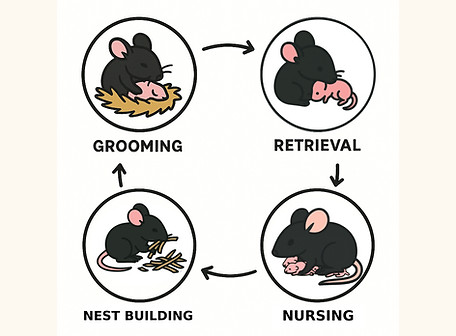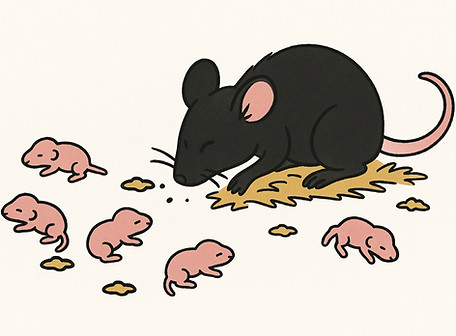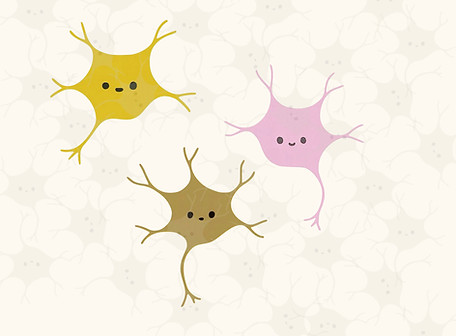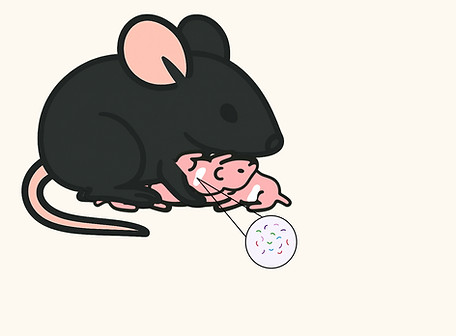Research

Parental switches
Parental behavior in mammals is driven by a core neural circuit, but this circuit is not necessarily on by default. Pregnancy hormones or experience with pups flip the switch. We study the cellular and molecular mechanisms involved.

Postpartum stress
Social stress in the postpartum can be modeled using male mice, who pose a threat to newborn pups. When mom has to chronically protect pups, she tends retreat from them. Interestingly, social stress doesn't have to be direct, just living nearby can have the same effect.

Motherhood in transition
The peripartum period is a unique window when the brain becomes especially responsive to experience, for better or worse. We use cutting-edge tools to track how maternal brain circuits change over time, revealing how caregiving behaviors can emerge even after early rejection.

Drug development with mothers in mind
Chestfeeding has many health benefits for both parent and baby but concerns about the safety of medication use during lactation can lead to early cessation. We use rodent models to better understand how medication transfers to infants via milk and how it might impact the developing brain.
